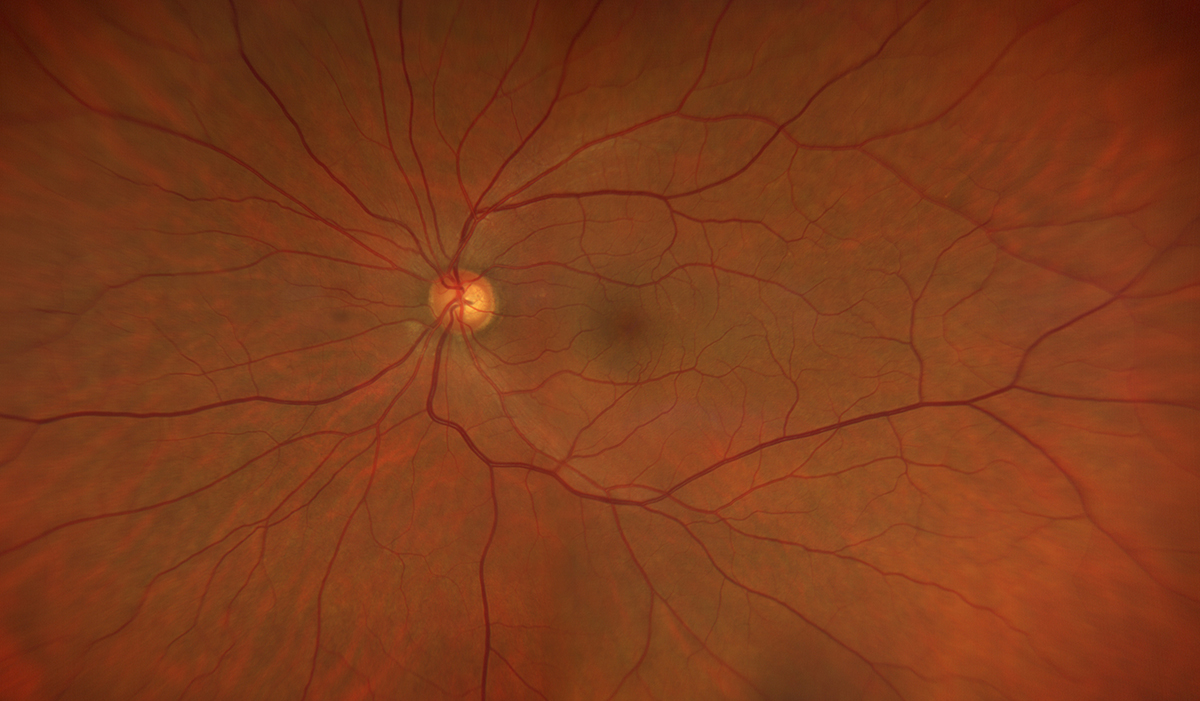 |
| Retinal age may be able to predict lifespan. Photo: Ryan Schott, OD. Click image to enlarge. |
People often go to great lengths (and expense) to conceal the effects of aging in their appearance; now, artificial intelligence systems can guess your age from analyzing your retina, according to a new study. And in a bit of a sci-fi angle, the AI can identify markers of accelerated aging that represent higher risk of mortality.
The retina offers a unique, accessible ‘window’ to evaluate underlying pathological processes of systemic vascular and neurological diseases that are associated with increased risks of mortality. Therefore, researchers in China have developed a deep learning model that can predict age from fundus images, known in their study as retinal age. Their measure of retinal age gap—the difference between predicted retinal age and chronological age—independently predicted the risk of mortality, especially of non-cardiovascular and non-cancer mortality.
The study used a total of 19,200 fundus images from 11,052 participants without prior medical history at the baseline examination to train and validate the model for age prediction. A total of 35,913 of the remaining 35,917 participants had available mortality data and were used to investigate the association between retinal age gap and mortality.
The model achieved a strong correlation (0.81) between retinal age and chronological age, and an overall mean absolute error of 3.55 years. Each one-year increase in the retinal age gap was associated with a 2% increase in risk of all-cause mortality (hazard ratio (HR)=1.02), as well as a 3% increase in risk of cause-specific mortality attributable to non-cardiovascular and non-cancer disease (HR=1.03).
“This risk stratification will assist tailored healthcare decision-making, as well as targeting and monitoring of interventions, the researchers wrote in their paper. “The ability to use fundus images in predicting aging may improve potential health benefits of eye disease screening the health economic cost-effectiveness of programs such as diabetic retinopathy screening, thus increasing the impact and access to eye disease screening programs.”
Zhu Z, Shi D, Guankai P, et al. Retinal age gap as a predictive biomarker for mortality risk. Br J Opthalmol. January 18, 2022. [Epub ahead of print]. |

